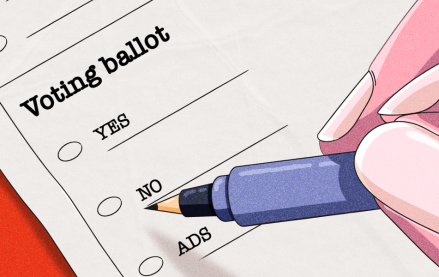Safari’s new private browsing mode provides a new path around publisher paywalls
Publishers have discovered a new, Apple-shaped hole in their metered paywalls.
The most recent version of Apple’s Safari browser, which began rolling out to users in late September, prevents sites from detecting when Safari visitors have the browser’s private browsing mode enabled. Private browsing, like incognito mode, temporarily prevents publishers from reading or writing cookies to a phone or computer, which makes it impossible for a paywall to detect how much content a reader has consumed, thereby rendering the meter useless.
The change also evades the countermeasures many news publishers deployed in an attempt to stop visitors using incognito mode. For example, an internet user who tries to read a story on The Boston Globe’s website using Chrome’s incognito mode will be blocked by a window demanding that visitors register or turn the mode off.
But a visitor using the most recent version of Safari in private browsing mode doesn’t get that same message and can read a limitless amount of content on the Globe’s site, simply by opening stories in new private tabs each time.
Far fewer Americans browse the internet using Safari than Google’s Chrome browser. Safari claims 9% of the U.S. desktop browser market share, according to Statcounter. (The picture is different on mobile devices: Safari claimed 53% of mobile browser market share in the U.S. in September, also according to Statcounter; Chrome accounted for 40% that same month).
But Safari users, who are overwhelmingly Apple device owners, are disproportionately valuable because they tend to be more affluent, and they tend to pay for news; Apple users tend to over-index as news subscribers, said Pete Doucette, managing director in the telecoms, media and technology practice at FTI Consulting, and for many news publishers, they tend to represent a majority of subscribers.
The change is recent enough that few publishers have determined the change is negatively affecting their businesses. An executive at one news publisher that operates a metered paywall noted that subscription sales driven by users in private mode was “slightly softer” this weekend, but the overall numbers were too low to form any conclusions.
More broadly, Safari’s update adds one more thing to a long to-do list for subscription-focused publishers, who already have a tough time figuring out how to convince readers to pay for subscriptions. “This will lead to a hard paywall for all readers and also make it more difficult to monetize content,” said Danielle Coffey, svp of strategic initiatives at the News Media Alliance. “While we’re interested in protecting our readers’ privacy, we still need a return on our investments to sustain quality journalism.”
Browser changes have been giving publishers headaches all year, on both the advertising and subscription fronts. In late July, a change Google made to Chrome forced publishers to find a new way to detect whether people were browsing the site in incognito mode, despite months of complaints and protests publishers made with Google. Anti-tracking changes made by Firefox have dropped the value of publisher ad inventory viewed in those browsers by more than 15% in countries such as Germany.
In response, publishers have become newly focused on cutting down the number of anonymous readers they have, turning to registration walls, among other things.
Those efforts may need to be accelerated, because observers expect that Safari will not be the last browser to make this kind of move, with web browsers continuing to focus on privacy to stay in the good graces of consumers and regulators.
“I would expect to see something like this come from Firefox and Opera soon,” said Dael Jackson, director of engagement products at Naviga, a paywall vendor. “Privacy is becoming a big focus for browsers, and they’re definitely going to be persistent in maintaining that privacy.”
More in Media

Publishers revamp their newsletter offerings to engage audiences amid threat of AI and declining referral traffic
Publishers like Axios, Eater, the Guardian, theSkimm and Snopes are either growing or revamping their newsletter offerings to engage audiences as a wave of generative AI advancements increases the need for original content and referral traffic declines push publishers to find alternative ways to reach readers.

The Guardian US is starting its pursuit of political ad dollars
The Guardian US is entering the race for political ad dollars.

How much is Possible’s future in Michael Kassan’s hands?
Some people in the know at Possible said they see the conference taking a bite out of Cannes’ attendance, most acutely by U.S.-based marketers who could save money by staying on this side of the Atlantic.








